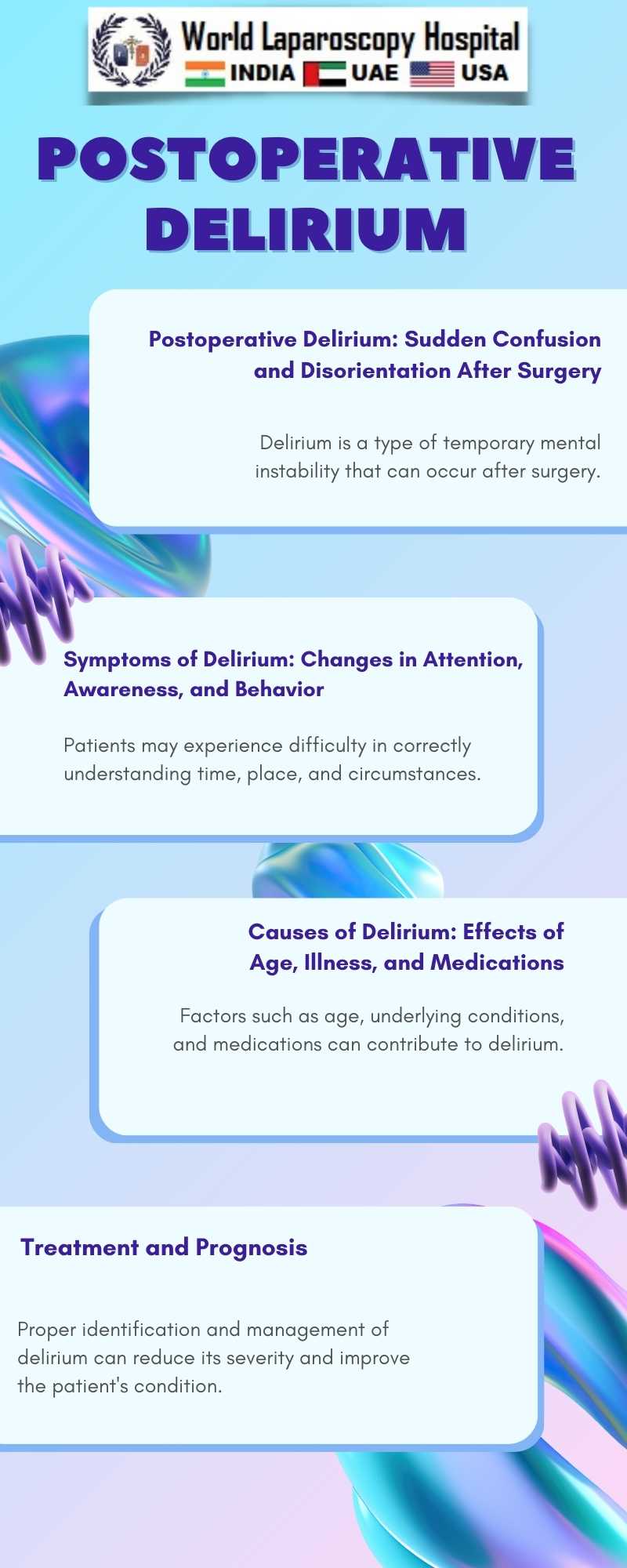
Delirium is a state of acute confusion and disorientation that can occur after surgery, particularly in older adults or those with preexisting cognitive impairment. It is characterized by fluctuating levels of consciousness, attention, and cognition. Postoperative delirium can manifest as agitation, hallucinations, delusions, or incoherent speech, making it challenging to diagnose and manage.
Several factors contribute to the development of postoperative delirium. Prolonged anesthesia exposure, particularly in older adults, is a significant risk factor. Other factors include preexisting cognitive impairment, advanced age, sensory impairment, dehydration, electrolyte imbalances, and the presence of comorbidities such as dementia or depression. Surgical stress, pain, sleep disturbances, and medication side effects can also contribute to the development of delirium.
Prevention and management of postoperative delirium require a multidisciplinary approach. Preoperative assessment should include a thorough evaluation of the patient's cognitive function, comorbidities, and risk factors for delirium. Optimizing hydration, nutrition, and pain management before and after surgery can help reduce the risk of delirium. Minimizing the use of sedatives and opioids, using multimodal pain management strategies, and promoting early mobilization can also be beneficial.
During the postoperative period, close monitoring for signs of delirium is essential. Early recognition and intervention are key to preventing complications. Nonpharmacological interventions such as orientation cues, reorientation techniques, and early mobilization should be used to manage delirium whenever possible. In cases where pharmacological intervention is necessary, medications should be used judiciously and under the guidance of a healthcare provider familiar with the patient's medical history.
Conclusion
Postoperative delirium is a common yet potentially serious complication following surgery, particularly in older adults or those with preexisting cognitive impairment. Understanding the risk factors, causes, and preventive measures for delirium is crucial for healthcare providers to ensure optimal patient outcomes. A multidisciplinary approach that includes preoperative assessment, optimization of hydration and nutrition, and close monitoring during the postoperative period is essential for the prevention and management of postoperative delirium.